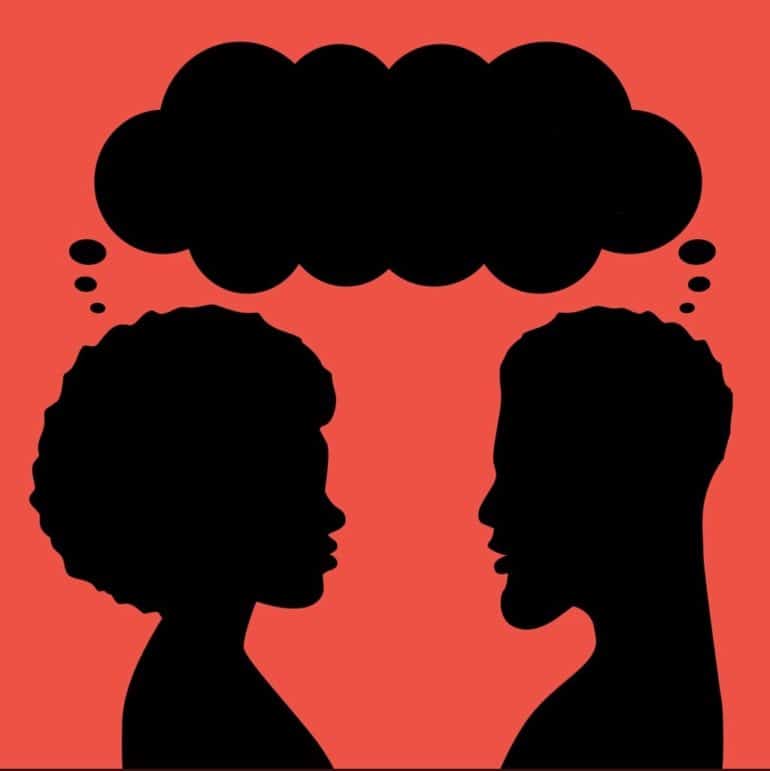In 2016, the number of people estimated to be suffering from mental health issues like depression and anxiety amounted to roughly 1.1 billion. Since then, numbers have likely continued to rise. Moreover, studies have also shown women especially on average are a) more likely to suffer from mental health issues, and b) less likely to talk about them. The taboo in Pakistan surrounding depression and anxiety disorders only serve to aggravate the individuals suffering even more. For the women who cannot seek out full time therapy, we’ve enlisted the help of a trained therapist. You sent us in your questions – here are the answers!

“Recently I was in a situationship. I have never been in a relationship because I have commitment issues and I am too cautious and protective of my personal space. I felt a connection with this person and I wanted to explore it. I was ready to commit to him but then we both realised we wanted different things and we parted ways. I liked this guy in a way I’ve never liked anyone else before. But when we ended things, I felt relieved. And instead of being sad because things didn’t work out I am sad because it took me a week to get over someone I really liked. And I thought I was mature enough to handle an adult relationship and commit to one person. But clearly, I was wrong and now I’m scared. I don’t want to end up alone. I really don’t know what to do now, and the fact that I’m only attracted to guys who don’t want to commit and guys who are only looking for flings doesn’t help either. The worst part is I don’t even entertain their offers to have a meaningless fling. I’m too scared to commit but I also don’t want to settle for less. What do I even want? I am so confused and worried. I am so lost. I’m “fix your own problems” kind of girl. So, I don’t really talk to people about my problems. And I really don’t think I can talk to my friends about this. I just don’t feel comfortable enough talking to anyone about it. Which is why reaching out to you is my last resort. I’ll be highly obliged for any kind of help on the matter.”

Shahrukh’s Response:
Dear Anon,
I can really sense a strong clash between the desire to connect, yet an equally strong fear of attachment. That combination can often take a toll because of the sheer magnitude of the contradictory forces at play here. Sometimes commitment isn’t so much about maturity as it is about healing old wounds related to our relationship with attachment. What you’re feeling isn’t uncommon, Anon, and you’re not alone there, I can tell you this for sure. Let’s explore this a little further and see how you can learn to understand your patterns a little more, and gradually figure out what it is that you would like from a relationship.
Desire And Fear Clash
We often hear about how we’re drawn to certain people more than others. Every so often, I’ll have a conversation with a friend, colleague or client and the words “I only go for emotionally unavailable men” tend to come up. Cognitively, there is an understanding that we would want ourselves to be with someone who is kind, caring and can meet our emotional needs. Yet when it comes to attraction, we find ourselves drawn to the ones who are the exact opposite, or to those who meet those criteria but cannot commit. So, what’s going on there?
This is where the conscious and the unconscious tend to coincide. While there is a conscious desire to commit, there might be a part of you that might not actually be ready for commitment, and is thereby playing out a game or a pattern where you steer towards attachments that are most likely to end.
History Of Attachment
When we look at how attachment works, we often examine the relationship that we had with our primary caregivers. As adults, if we experience that fear or that reluctance towards fulfilling and long-term relationships, it is likely that one’s primary caregiver (usually parents) was emotionally unavailable. The general understanding of human attachment is that we tend to go towards what is familiar. Hence, if we are used to people close to us not being able to meet our needs, it’s entirely possible for one to reenact and repeat that pattern in adult relationships, hoping that the outcome might be different. In addition to how we experience attachment and care first-hand, what also makes an impact is how relationships are modelled to us. So, if you have parents who are together, but are emotionally distant, you might see that as the primary model or standard for how relationships are, or what they’re meant to be like.

“So, What? Will I Never Have A Fulfilling, Loving Relationship?”
This can often be a difficult thing to explore, and a lot of times people go their entire lives without really understanding the painful origins of their commitment issues. It’s generally dismissed as “childish” or “lack of maturity”, when in reality, it’s attachment-related trauma. I assure you, it’s not something that goes away with age. What helps is knowing, understanding and going through the process of healing that inner wound within you. This can be done through several routes:
- Therapy: when it comes to understanding concepts and exploring your narrative, therapy can be a great way to achieve this. Your therapist will be able to hold space for you, as well as help you discover your patterns and stay mindful of them, while simultaneously also helping you find ways to recover from old wounds.
- Self-awareness: sometimes if therapy isn’t an option, some people might explore the idea of self-help books and learning more about themselves. In this scenario, learning more about your attachment style and staying aware of what you need, and the red flags that you may need to stay more cautious of.
- Non-verbal trauma-informed approaches: as the world of psychology evolves, research is now looking into non-verbal approaches to working with trauma. Tension, Stress and Trauma Release (TRE) and Eye Movement Desensitization and Reprocessing (EMDR) as well Gi Gong are just some of these approaches. These are generally more sustainable as they are considered to be more short-term, and rely less on conversation and more on how the body responds. Some choose to continue with therapy, while others may just choose to go with these approaches exclusively. For more information, you can look up the Trauma Release and Wellness centre (@trwcentre) that offers counselling, as other trauma-informed approaches.
Anon, I know this can be confusing and scary at times, and that’s alright. Take your time, explore what’s happening for you, and move forward from there. Your journey will be what it’s meant to be, there’s no right or wrong. I hope that as time progresses, you learn more about yourself and your inner wisdom. I wish you all the best! Take care and stay in your power!

The above article is written by Shahrukh Shahbaz Malik who is trained in humanistic integrative counselling at CPDD in the UK and currently has her own private practice in Karachi. The views expressed in this article are those of one expert. They do not necessarily represent the views of Mashion, nor do they represent the complete picture of the topic at hand. This article is for informational purposes only and is not a substitute for medical diagnosis or treatment.








What do you think?
You must be logged in to post a comment.